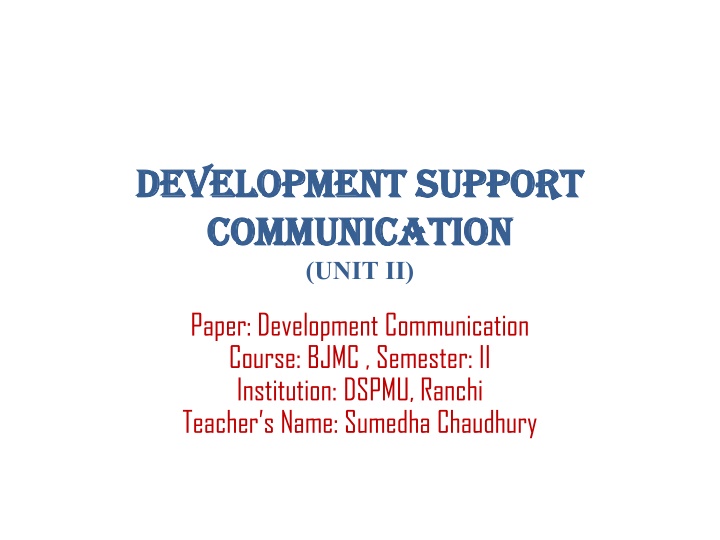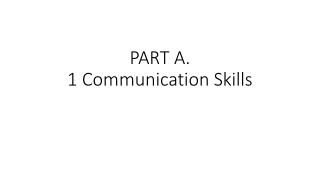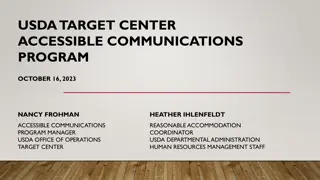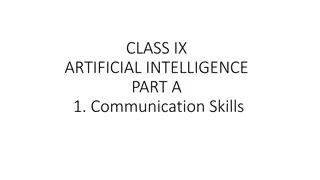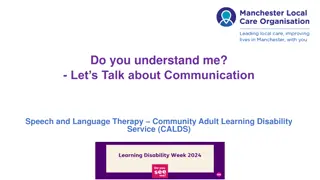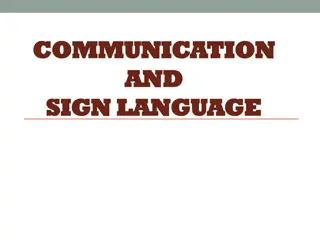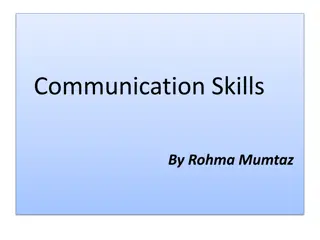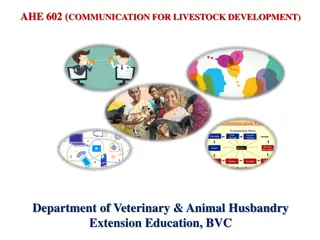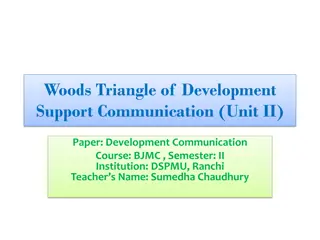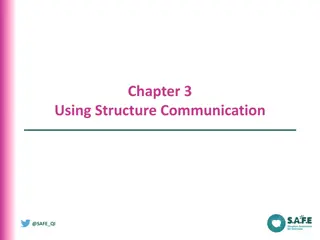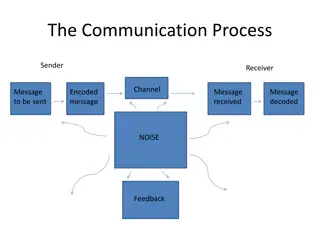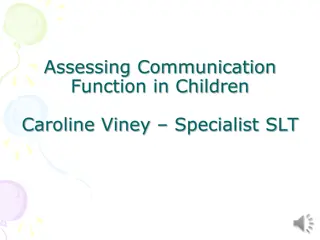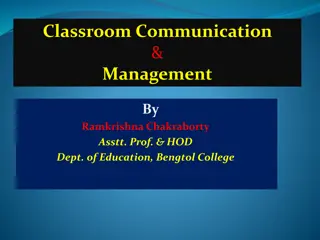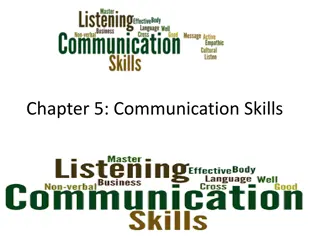DEVELOPMENT SUPPORT COMMUNICATION
This paper focuses on the role of development support and communication in the field of Journalism and Mass Communication. It explores effective strategies for fostering development goals through communication processes. Students will study various communication models and techniques that contribute to sustainable development efforts. The course aims to enhance students' understanding of how communication influences development initiatives and equips them with the skills to engage in development communication practices.
Download Presentation

Please find below an Image/Link to download the presentation.
The content on the website is provided AS IS for your information and personal use only. It may not be sold, licensed, or shared on other websites without obtaining consent from the author.If you encounter any issues during the download, it is possible that the publisher has removed the file from their server.
You are allowed to download the files provided on this website for personal or commercial use, subject to the condition that they are used lawfully. All files are the property of their respective owners.
The content on the website is provided AS IS for your information and personal use only. It may not be sold, licensed, or shared on other websites without obtaining consent from the author.
E N D
Presentation Transcript
DEVELOPMENT SUPPORT DEVELOPMENT SUPPORT COMMUNICATION COMMUNICATION (UNIT II) Paper: Development Communication Course: BJMC , Semester: II Institution: DSPMU, Ranchi Teacher s Name: Sumedha Chaudhury
Development Communication And Development Support Communication The idea that communication is a major element necessary for inducing economic development and sociocultural modernization is not new. Since the launch of the United States Point Four Programme in 1949 social scientists and policy-makers considered communication a driving force in social change.
Development Support Communication (DSC) DSC is an integral part of development communication. Operationally, it involves development planning and implementation in which all agencies involved in the planned development such as policy/decision makers, field workers, media personnel, opinion leaders, researchers and beneficiaries are linked. It deal with social, economic, political and cultural aspects and desire to create positive change. It comes out of need to meet professional communication roles in development. Primary role is problem solving, development issues, beginning with systematic understandings of the local condition. The ability of DSC to achieve popular participation and argued that development support communication has participatory approach the idea of development communication is a major element necessary for the inducing economic development.
Philosophy of DSC The latest efforts undertaken to bring about a change in a limited area. It emerged as a more specific and participatory communication effort to educate the people of rural settings. It aims at targeting the audience to achieve a specific and defined goal of change and development. It It works within a limited community to create awareness about innovations. does not depend on technological based communication media. Its philosophy is to motivate the intended audience towards change using all available means of communication. It interacts more closely.
Objectives of DSC According to Todar and Smith identified three objective of development: To increase the availability and widen the distribution of basic life sustaining goods such as food, shelter, health and protection. To raise levels of living in addition to higher incomes, the provision of more jobs, better education, and greater attention to cultural and human values, all of which will serve not only enhance material well-being but also to generate greater individual and national self- esteem. To expand the range of economic and social choices available to individuals and nations by freeing them from servitude and dependence, not only in relation to other people and nation-states but also to the forces of ignorance and human misery
